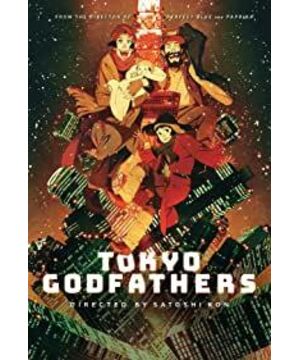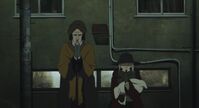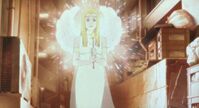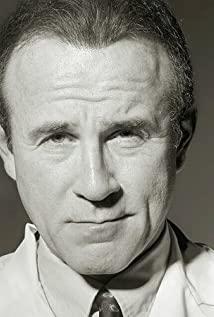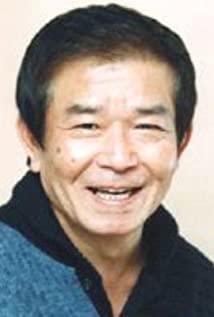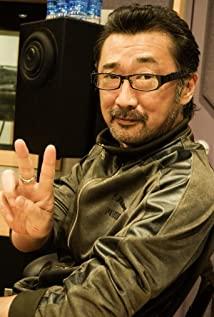"Tokyo Godfather" is an alternative Jinmin animation. He is no longer brain-burning, no longer suspenseful. On the surface, it looks more like a humorous comedy animation with surprises, joys and happy endings. Although the experience between the abandoned babies who came was ups and downs, it was full of joy. There was no flaw in the story, but the feelings were very rich. This has been called excellent.
However, if you carefully compare the character settings of the whole story, you will find some amazing coincidences. This is also the thought-provoking part of this movie. Jin Min skillfully compares the characters with reality, which is actually the same as Jin Min's best at dreaming and dreaming. The way of switching in reality is similar, but it is uncharacteristically not reflected in the movie. In fact, we can easily find our own shadow in Xiaohua, Miyuki or Jin. Are we not the castaways of this world, faceless to our family ( Miyuki), not having the courage to face life (Jin), or even the confidence to face self-knowledge (Xiao Hua). . .
Of course, what is even more ingenious is the so-called one-to-one comparison with religion. I don’t know if Jin Min is a Christian, but the film’s discussion of religion and even deeper philosophical discussions can also be seen one or two. . Of course, directors of their generation are accustomed to and reflect on the current Japanese society. Whether it is the people's life after the war in Japan, or the Japanese society under the economic bubble, they all frequently appear in Japanese movies.
This is indeed a different animation. Under the warm and humorous details, there are hidden metaphors of reality that are thoughtful and terrifying.
View more about Tokyo Godfathers reviews


